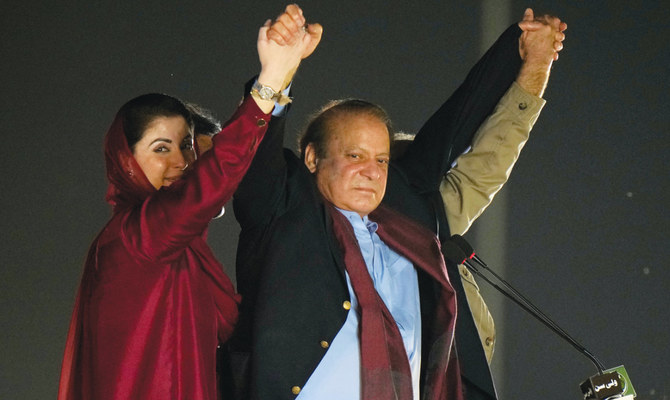
A Bold Call for Peace Talks
Pakistan’s Prime Minister Shehbaz Sharif has issued a strong and comprehensive invitation to India, saying Islamabad is “ready to talk with India on all issues.” Speaking from Tehran as part of a four-nation tour, he specified that the talks would address a full spectrum of disputes: Kashmir, terrorism, water-sharing, trade, and more. The statement signals a rare readiness to engage on multiple fronts after recent military confrontation and icy diplomatic relations.
Shifting Diplomatic Winds
Sharif’s speech comes on the heels of the May ceasefire agreement, brokered by the United States, that halted the worst India-Pakistan military exchange in almost 30 years. The move underscores a notable shift from confrontation to cautious diplomacy, as both nuclear-armed neighbours take tentative steps toward reducing hostilities and exploring dialogue.
Kashmir at the Centre
Kashmir remains the emotional and political heart of tensions. Sharif directly called on India to reverse its August 2019 decision revoking Article 370, urging a return to dialogue following earlier United Nations commitments. He referenced the 1999 Lahore Declaration as a model, asserting that peaceful negotiations are “the only way forward.”
“War Is Not An Option”
Sharif emphasized that war is no longer a viable route, stating “war is not an option” given the nuclear reality. He pointed to the futility of past wars, three full-scale conflicts in 75 years, that he argued had only deepened poverty and wasted national resources. His position reflects both a strategic and moral appeal for de-escalation.
India’s Red Line: Terrorism & POK
New Delhi’s stance, as affirmed repeatedly by External Affairs Minister Randhir Jaiswal, remains firm: “terror and talks cannot go together.” India insists any dialogue must start with Pakistan handing over terrorists on its list, and any discussions on Kashmir must be tied to Pakistan’s withdrawal from the regions it occupies. India also translates this stance into concrete suspension of bilateral frameworks, including the Indus Waters Treaty, citing Pakistan’s alleged terror support.
Water, Trade, Terrorism on the Table
Sharif has widened the bargaining scope and isn’t stopping at Kashmir and terrorism. He’s invited dialogue on water-sharing, trade revival, and counter-terrorism, suggesting a “serious and sincere” outreach aimed at systemic normalization. The willingness to discuss trade hints at a deeper strategic play: economic integration could underpin a more stable bilateral relationship.
Domestic Pressure and Senior Voices
Within Pakistan, Sharif’s tone is both a strategic pivot and a political balancing act. His elder brother Nawaz Sharif publicly urged him to avoid aggression, emphasizing diplomacy as the preferred path during cross-border tensions. Across the nation, this message resonates many Pakistanis are weary of repeated crises and hopeful for a stable peace.
A Complex Track Record
Sharif’s outreach revives themes from the historic 1999 Lahore Declaration, while navigating a post-2019 geopolitical world that’s far more volatile. Analysts note that while Sharif’s rhetoric signals warmth, New Delhi’s insistence on preconditions means any breakthrough requires major shifts in policy and trust. India remains clear: terrorism must cease before dialogue can start, and occupied territories must be returned.
The U.S. and Broader Mediation
International influence mainly from the U.S., but also Saudi Arabia, Iran, the UAE and China was decisive in securing the May ceasefire. Washington played a key role in nudging both sides toward peace. With Sharif’s new call, there may be momentum for third-party facilitation to bridge the gap between ambitious goals and reluctant realpolitik.
What Lies Ahead
For now, Sharif’s invitation has opened space but the real test lies in India’s response. Will New Delhi respond with incremental, confidence-building measures, or will the preconditions harden the diplomatic divide? Pakistan has offered talks on a wide range of issues; the question remains whether India will accept this breadth or shape the dialogue narrowly around terrorism and POK as it has already pledged.
A Chance for Breakthrough or Another Stalemate
Sharif’s appeal breaks from the pattern of recurring crises – ceasefires, sharp rhetoric, stalled talks. It’s a calculated bid to shift from reactive diplomacy to proactive engagement. Yet Delhi’s unyielding stance on terror and territory means that unless Islamabad moves in line with Indian demands, the offer of talks may remain just that.
At this juncture, the subcontinent stands at a crossroads: will Sharif’s landmark invitation and Delhi’s resolute preconditions catalyse negotiations, or will they entrench existing mistrust? With nuclear stakes, regional stability, and international attention high, the next exchanges, public and behind the scenes, across Islamabad and New Delhi will determine whether this is a thaw or another diplomatic freeze.




































Leave a Reply